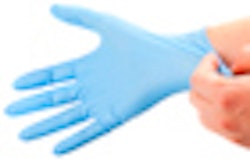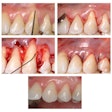Miconazole buccal tablets are an effective treatment for oropharyngeal candidiasis, although the cost can be prohibitive for some patients, according to an article in the Journal of Patient Preference and Adherence (July 19, 2011).
Oropharyngeal candidiasis is the most common opportunistic infection affecting patients with the human immunodeficiency virus (HIV) and is also quite common in patients with hematological malignancies, noted researchers from the University of Michigan Health System.
A variety of options, both systemic and topical, exist for the treatment of oropharyngeal candidiasis, and miconazole buccal tablets are the most recent addition to the antifungal armamentarium. The tablets were approved by the U.S. Food and Drug Administration in 2010 for the treatment of oropharyngeal candidiasis.
Clinical trials have demonstrated noninferiority in the treatment of oropharyngeal candidiasis when compared with clotrimazole troches in patients with HIV and miconazole gel in patients with head and neck cancer, the researchers noted.
"When comparing miconazole buccal tablets to the other topical agents, miconazole has the advantage of being applied once daily versus five times a day with clotrimazole troche and four times daily with nystatin swish and swallow," they wrote. As a result, adherence has been shown to be greatly enhanced, they added.
"Miconazole buccal tablets exhibit few drug interactions because of low systemic absorption and are generally well-tolerated with a safety profile similar to comparators," the authors concluded. "The once-daily dosing schedule may improve patient adherence compared with topical alternatives; however, the cost of therapy may be a barrier for some patients and should be considered by prescribers compared with alternative treatments."



















